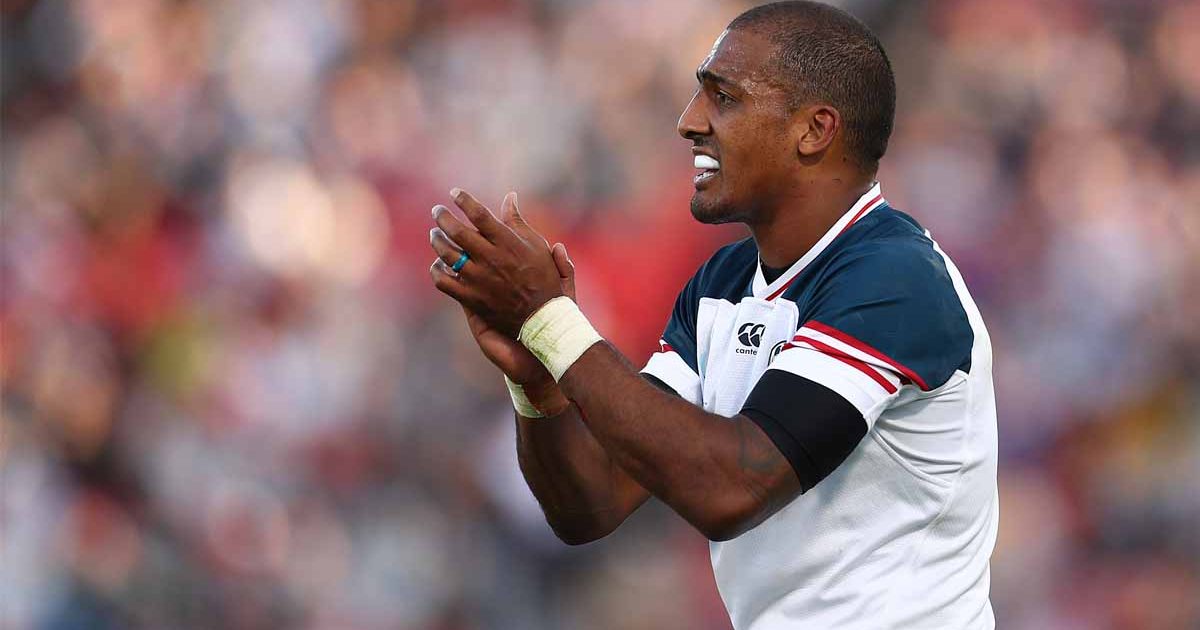USA coach 'at a loss for words' after World Cup qualifying upset

While there’s no question that Canada are not quite the mid-tier rugby superpower of the past, they’ve proven that they’re still capable of footing with the tier-two big boys after scoring an important win in Saturday’s Rugby World Cup qualifier.
Canada squared off with their traditional rivals, the USA, in Newfoundland and while they entered the game as rank outsiders, they pulled off a 34-21 comeback win in the first of a two-legged series to decide North America’s top seed for the remaining qualifying matches.
Canada were once far and away the top national side in North America – and second only to Argentina in the Americas region.
They’ve been a constant presence at the Rugby World Cup since the tournament’s inception in 1987, even making the quarter-finals of the 1991 competition in the United Kingdom.
Looking locally, until 2014, USA had only mustered 12 wins over Canada from 51 attempts.
Since then, however, there’s been a massive shift in the balance of power in North America. The Eagles had gone undefeated against the Canucks for seven years – until this weekend.
Without some of their foreign-based stars like Tyler Ardron, few expected Canada to be able to compete with their opposition – but that wasn’t the case at all.
USA struggled to find much continuity early in the game but looked to have the upper-hand at the set-piece, and held a 14-10 lead at halftime. From that point on, however, almost everything went the way of Canada – and they built an insurmountable 20-point lead.
The Eagles did manage a late consolation try, which could prove important down the track.
Next weekend, the two sides will again square off – this time in America – with the overall winner of the two-match series (based on wins, then points differential) progressing through to face Uruguay to decide which side will qualify for the Rugby World Cup as Americas 1.
?? @RugbyCanada has picked up a 34-21 victory over their North American rivals, @USARugby in the first leg of @rugbyworldcup qualification to decide the @RugbyAmericasN #1 seed.
It's their first win over the Eagles since 2012. @usmlr #RWC2023 pic.twitter.com/9Ge45iVStc
— The Rugby Network (@therugbynetwork) September 4, 2021
The losing side still has a shot at qualifying, however, but the pathway becomes considerably more convoluted.
“[I’m] pretty much at a loss for words,” said Eagles coach Gary Gold after the game. “[It was a] completely and totally unacceptable performance. Very disappointing considering we had a very good start.
“We were dominant at the set piece against these guys and ultimately we were the masters of our own destiny. This was 100% our own doing.
“The challenge has been laid. We knew that this was going to be a very good Canadian team. And they came out and proved it. Just really disappointing all around and we’ve got our work cut out for us. We have to step up to the plate next week if we want to be serious about qualifying for Rugby World Cup.”
Canada coach Kingsley Jones was cautiously optimistic after the surprise win.
“We have a 13-point lead at the moment and 80 minutes to play. Would I have signed for that this morning? I probably would have,” he said.
“We’ll take that but we know it’s going to be a different challenge next week, a big challenge. We need to make sure we enjoy the win because they’re few and far between with the level of teams that we’ve been playing recently, and we can take some confidence from it.”


















































